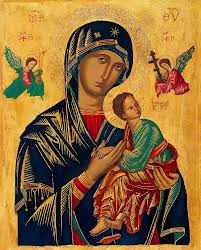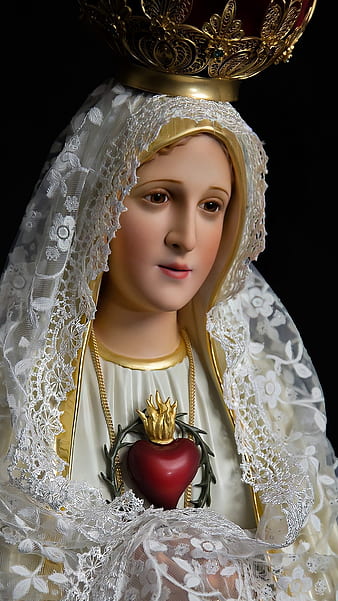The Rosary: A Marian Devotion and its Spiritual Efficacy
Introduction: Defining Key Concepts
This article examines the Rosary, a significant devotional practice within Catholicism, exploring its theological underpinnings and spiritual impact. We will analyze its structure, focusing on the various mysteries, and investigate its role in fostering Marian devotion and deepening the relationship with Christ. Key concepts include Marian devotion (the veneration of Mary, Mother of Jesus), intercession (Mary's role in bringing prayers to God), and sacramental theology (the understanding of how God's grace operates through sacred actions and objects). We will also consider the application of these concepts through the lens of established theological frameworks.
Theological Framework for Marian Devotion
The Rosary's central focus is Marian devotion, grounded in Catholic theology's understanding of Mary's unique role in salvation history. The Catechism of the Catholic Church emphasizes Mary's complete openness to God's will, exemplified by the Annunciation (Luke 1:28), a pivotal event signifying her acceptance of her divine vocation. This event, and others reflected in the Rosary's mysteries, underscore Mary's pivotal role in the life, death, and resurrection of Jesus Christ. This understanding aligns with the concept of theotokos, meaning "God-bearer," affirming Mary's unique position as the mother of God. The Rosary, as a form of prayerful meditation, facilitates a closer relationship with Mary, facilitating a pathway to a deeper understanding of Christ.
The Structure and Significance of the Rosary's Mysteries
The Rosary's structure is carefully designed to guide contemplation. Its four sets of mysteries – Joyful, Sorrowful, Glorious, and Luminous – present a chronological narrative of Christ's life, each mystery offering a distinct lens through which to experience the life and mission of Jesus. The Joyful Mysteries emphasize the Incarnation and early life of Jesus, while the Sorrowful Mysteries focus on the suffering experienced by both Jesus and Mary. The Glorious Mysteries celebrate the resurrection and ascension of Christ, highlighting Mary's continued role as a disciple and intercessor. The Luminous Mysteries, added by Pope John Paul II, illuminate Christ's public ministry, emphasizing the significance of events such as the Baptism and the Wedding at Cana. This structured meditation provides a framework for spiritual growth, aligning with the principles of lectio divina, a method of prayerful reading and reflection on Scripture.
The Rosary as a Means of Intercession and Spiritual Growth
Catholic theology posits that Mary's intercession brings prayers before God. The repetitive nature of the Hail Mary within the Rosary creates a space for contemplative prayer, fostering a state of receptivity to divine grace. This aligns with the concept of contemplative prayer, where the focus shifts from the words themselves to the silent presence of God. The Rosary, therefore, is not merely a recitation but a powerful tool for spiritual growth, enabling deeper communion with God through Mary's intercession. The experience of praying the Rosary is often described as bringing peace, solace, and a strengthened sense of faith, consistent with the reported effects of contemplative practices on psychological well-being.
Historical and Contemporary Significance of the Rosary
The Rosary's enduring popularity across centuries is evidenced by its adoption by numerous saints, including St. Dominic, St. Padre Pio, and St. Teresa of Calcutta, who all testified to its spiritual efficacy. Their devotion underscores the power of Marian devotion and the Rosary's capacity to foster a deeper relationship with God. This historical continuity demonstrates the Rosary's enduring relevance in the spiritual lives of believers, highlighting its effectiveness as a means of personal and communal spiritual growth. The Rosary's continued practice today affirms its adaptability to contemporary spiritual needs, maintaining its significance in shaping individual and communal faith.
Conclusions and Recommendations
This exploration of the Rosary reveals its multifaceted role in Catholic spirituality. Its structured format facilitates contemplative prayer, promoting spiritual growth through engagement with the mysteries of Christ's life. Mary's role as intercessor is central to its efficacy, offering a pathway to deeper communion with God. The historical and contemporary popularity of the Rosary underscores its enduring relevance and its continued ability to meet the spiritual needs of believers. Further research could investigate the psychological and spiritual effects of Rosary prayer, employing qualitative methodologies such as in-depth interviews and thematic analysis to explore the subjective experiences of those who practice it. This could illuminate the Rosary's potential to enhance well-being and foster a deeper connection with both Mary and God.
Reader Pool: What are your thoughts on the role of Marian devotion in contemporary spiritual practice, and how does this influence the understanding and relevance of the Rosary today?







No comments yet. Be the first to share your thoughts!